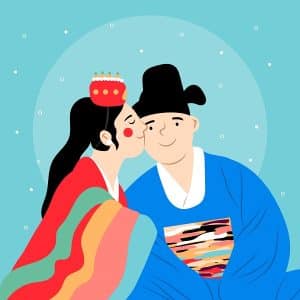Korean Dating Culture

With the global popularity of K-dramas, K-pop, and Korean fashion, many people are developing a fascination with the culture of romance in South Korea. If you’re new to dating in Korea or simply curious about how it works, you’ll quickly find that it blends traditional values with modern charm. Compared to Western dating, relationships in Korea tend to be more structured and symbolic, placing a strong emphasis on clear communication, emotional expression, and respect.
What Makes Korean Dating Culture Unique?
One of the key differences in Korean dating is the intention behind it. While casual dating certainly exists, many people in Korea enter relationships with the hope of a meaningful, long-term connection. This doesn’t mean relationships are always serious, but there’s usually less ambiguity. Dating is often treated as a sincere step toward deeper companionship, rather than something purely casual or temporary.
Gobaek: The Confession That Starts It All
In Korea, romantic relationships often begin with a formal confession known as gobaek (고백), where one person openly declares their feelings to the other. Instead of gradually easing into a relationship after a few casual dates, one partner will often say something direct like, “I like you. Do you want to date me?” This moment holds significant meaning in Korean culture, signaling the start of an official relationship.
For non Koreans, this may feel sudden or overly formal, but in Korea, clarity is appreciated. Without a clear confession, even multiple dates may not be interpreted as a romantic relationship. This is why gobaek is seen as an essential and even romantic tradition.
Couple Culture: Matching Outfits and Anniversary Fever
Once a relationship is official, Korean couples often embrace what’s called “couple culture.” This includes wearing matching outfits, using matching phone cases, or even wearing identical rings. While it may seem overly cutesy to some, these gestures are seen as symbols of unity and love.
Anniversaries are also deeply celebrated. The 100-day mark is especially important, often marked by gifts, special dates, or even vacations. Korean couples tend to track their days together with apps or calendars, celebrating 100, 200, and even 1000-day milestones.
Rather than being viewed as over-the-top, these expressions of affection are normalized and often expected. They serve as regular affirmations of commitment and shared growth
Dating Etiquette: Respect and Manners Matter
Respect plays a major role in Korean dating. This stems from Confucian values that emphasize social harmony, age hierarchy, and proper behavior. How you speak to your partner—especially in the early stages—matters greatly. If your partner is older, you’re expected to use polite speech (known as jondaetmal, or 존댓말) until you’re invited to speak more casually.
You’re also expected to show courtesy to their friends and family. First impressions can go a long way, and how you interact with those close to your partner can directly affect your relationship.
While many younger Koreans are more relaxed about etiquette, it’s always safer to err on the side of formality, especially in the beginning. Demonstrating respect is one of the most appreciated traits you can bring into a relationship in Korea.
PDA in Korea: What’s Acceptable in Public?
Public displays of affection (PDA) in Korea are generally more reserved than in many Western countries. While holding hands, linking arms, or small pecks on the cheek are becoming more common, particularly among younger couples, anything more than that is often frowned upon in public spaces.
In family areas, rural towns, or when older people are around, couples tend to be more discreet. This doesn’t mean affection isn’t important—it just means it’s often expressed more privately. Showing care through words, actions, and thoughtful gestures often carries more weight than public intimacy.
Communication: Constant Contact is Normal
One noticeable trait of Korean dating is how frequently couples stay in touch. Many couples message each other several times a day—checking in, sharing meals via photos, or simply saying 보고 싶어요 – bogo sipeoyo “I miss you.” In Korean culture, frequent communication is viewed not as clingy but as a sign of attentiveness and emotional presence.
If you go long periods without texting or calling, your partner might feel neglected or wonder if something is wrong. Being proactive in communication, even in small ways, helps build a stronger emotional connection and reassures your partner that you’re invested in the relationship.
This high-touch communication style is one of the biggest cultural shifts for many foreigners dating in Korea, but it can also lead to deep emotional closeness if embraced sincerely.
Final Thoughts: Advice for Dating in Korea
Dating in Korea offers a unique blend of tradition and modern romance. When you’re dating a Korean partner, being aware of cultural expectations can make a big difference. Small gestures—like remembering anniversary dates, using polite speech, or responding to messages thoughtfully—go a long way in showing your sincerity.
If you’re looking to connect more deeply with your partner, learning the Korean language and understanding the culture can significantly enrich your experience. Not only does it reduce misunderstandings, but it also shows a genuine commitment to understanding where your partner comes from. Consider enrolling in online Korean classes or hire a Korean tutor to deepen your knowledge and become a more confident, culturally aware partner.



